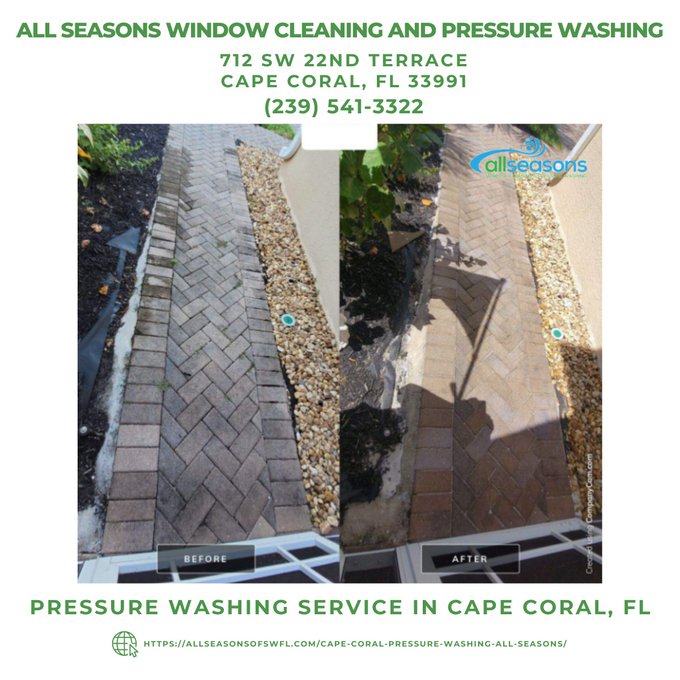Introduction
Cape Coral, Florida, is often lauded for its picturesque canals, warm weather, and vibrant lifestyle. As a rapidly growing city, it attracts many Residential Pressure Washing individuals seeking a slice of sunshine and a laid-back atmosphere. However, like any place, living in Cape Coral comes with its fair share of drawbacks. In this article, we'll explore The Cons of Living in Cape Coral: What You Should Consider to help you make an informed decision about relocating or visiting this area.
The Cons of Living in Cape Coral: What You Should Consider
Living in Cape Coral has been a dream come true for many, but it's essential to weigh the pros against the cons. Although the sunny skies and waterfront properties are enticing, various factors may not align with everyone’s expectations. Before packing your bags or booking flights to visit, consider these potential downsides:
Limited Public Transportation Options
Cape Coral is not known for its robust public transportation system. While some cities have extensive bus networks or train systems, Cape Coral relies primarily on cars for commuting.
- Public Transit Availability: Are there buses? Yes, but they run infrequently. Walkability: Is it a walkable city? Mostly no; many areas require a vehicle. Bike Paths: Some neighborhoods have bike paths, but they’re not extensive enough for full reliance.
This lack of options could be a deal-breaker if you prefer urban conveniences without needing to own a car.
High Cost of Living
If you're wondering Why is Cape Coral so expensive?, it's largely due to its popularity as a retirement destination and vacation spot.
- Housing Prices: Real estate prices have surged over the years due to demand. Insurance Costs: Homeowners insurance can be quite high because of hurricane risks. Utilities and Groceries: These can also add up quickly compared to other parts of Florida.
While some may find it worth the expense due to the quality of life, others might feel overwhelmed by the costs involved.
Hurricane Season Concerns
Living in Florida means dealing with hurricanes.
- Hurricane Preparation: Residents must prepare annually for potential storms. Insurance Complications: Some homeowners struggle with coverage issues related to storm risks. Evacuation Plans: Knowing where to go during an evacuation is crucial.
This adds an extra layer of stress that isn’t present in less hurricane-prone regions.
Limited Job Opportunities
If you're considering moving here for work-related reasons, you might want to ponder this question— Is Cape Coral good to live? It depends on your job field:
- Local Economy: The local economy is primarily service-based and offers limited high-paying jobs. Commute Options: Many residents commute to nearby Fort Myers for better opportunities. Job Market Trends: Certain sectors (like healthcare) are growing; others remain stagnant.
Be sure your career aligns with what’s available before making any decisions.
Seasonal Crowds
If you've ever wondered if people vacation in Cape Coral during peak season, the answer is yes! This influx can lead to crowded restaurants and tourist attractions:
- Peak Tourist Season: Winter months see an explosion in population due to snowbirds. Local Amenities Strain: Grocery stores and services may become overcrowded. Traffic Issues: More visitors mean more traffic jams—something locals often grumble about.
For those who don’t enjoy crowded places or delays while running errands, this might be frustrating.
Environmental Concerns
Cape Coral's beautiful canals are one reason people flock here; however, they bring their own set of issues:
- Water Quality Issues: Many wonder—Can you drink Cape Coral water? The answer isn't as straightforward as you’d hope. Tap water meets EPA standards but can have taste issues due to chlorine levels. Testing your water regularly is prudent if you're concerned about quality.
With these environmental concerns in mind, make sure you're comfortable navigating them before settling down.
Limited Cultural Scene
Compared to larger cities like Miami or Orlando:
- Cultural Offerings: Cape Coral lacks diversity in entertainment options—art galleries and theaters are fewer. Nightlife Limitations: The nightlife scene tends more toward low-key bars rather than vibrant clubs or music venues.
If cultural experiences rank high on your list, you may need to travel elsewhere occasionally for entertainment options.
FAQs about Living in Cape Coral
li21/ol1/li22li22/ol2li23# What makes Cape Coral special?- Its unique canal system offers boating access from homes directly into local waterways—a huge draw for water enthusiasts!
- It's about 130 miles from Disney World—roughly a two-hour drive depending on traffic conditions.
- The best time would be between December-April when temperatures are pleasant and crowds are manageable before summer heat kicks in!
Conclusion
In summary, living in Cape Coral presents both exciting opportunities and notable challenges. It’s essential that anyone contemplating moving here weighs these considerations carefully against personal priorities and lifestyle choices. While gorgeous views and outdoor activities abound—the cons discussed throughout this article should inform your decision-making process effectively!
So whether you're drawn by the allure of waterfront living or considering a vacation spot away from home—the sunshine state has plenty more than just sunny days waiting at every corner!
As we’ve explored through various headings above—take time before jumping headfirst into relocating here—to determine if it's truly compatible with what you’re looking for!

